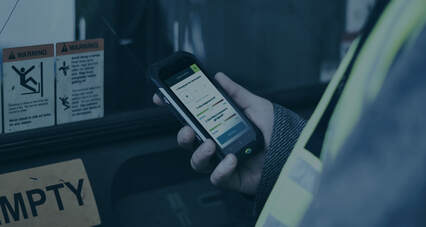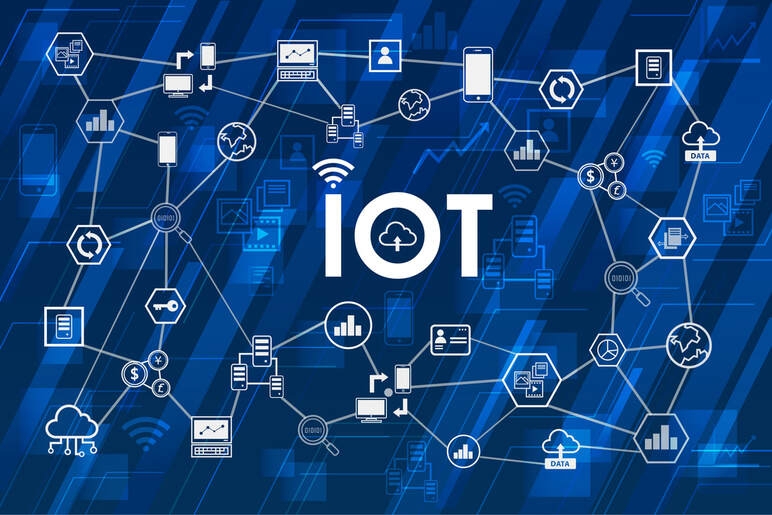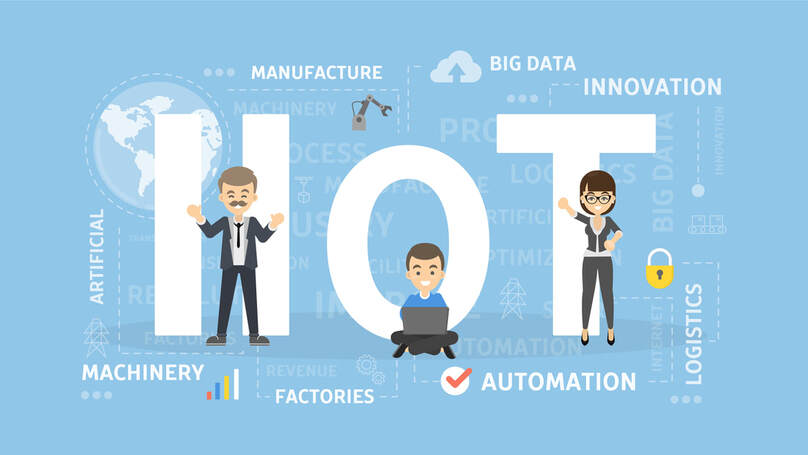|
You’ve probably noticed something different about new workers coming into your workforce, and it has nothing to do with the tropes about being lazy, living at home or avocado toast.
Younger workers you are hiring have something in common that separates them from your older workforce: Technology is integrated into every aspect of their lives. Literally EVERY part of their lives is touched by technology in some way. Who is Dan? Dan’s been around for a long time and he isn’t going anywhere soon. He possesses a keen power of foresight - which is to say that he knows what is going to happen before it happens, evidenced by his most common refrain, “I told you so.” His experience is quite valuable, and could do wonders for some of the newer workers who recently arrived on the team. Unfortunately, Dan isn’t the best communicator, and interactions with him often end with a frustrated, throwing-my-hands-in-the-air type of gesture.
 There's a challenge facing every industrial application worksite - a challenge no one wants to talk about. This challenge is faced across all Construction and Manufacturing sectors, across all disciplines from Safety and Quality to Human Resources and Operations. The challenge can't be answered with a piece of PPE, or a sensor, or an employee survey. The risks of not meeting this challenge range from increased frequency and severity of safety incidents, to reduced efficiency and productivity. The biggest challenge facing industry today is: Given the wide range of experience levels, temperaments, and personalities that exist in the industrial workforce of today, how can companies engage with ALL of their workers regularly, efficiently and effectively? The benefits of direct transparent engagement with workers are significant. A Gallup study determined that compared with business units in the bottom quartile of engagement, those in the top quartile realize improvements in the following areas:
The most common response we hear when talking to leaders in industrial applications about engagement is some form of, “We completely understand the benefits of engagement, we just have no idea how to measure engagement or even where to start.” This is an understandable position to have, especially when looking specifically at your own workforce. Industrial workers span a wider range of ages, experience levels and backgrounds than any other segment of the workforce. The good news is that modern technology and communication tools have made engagement more attainable than ever before. Over the next few weeks, we’ll be going on a deep dive to illustrate why and how you can transparently engage with your unique Cast of Operational Characters. As a preview here is a sneak peak at how you can leverage engagement to get more out of one of your workers, Paul the Pencil Whipper.  The statistics are everywhere, but if you work in manufacturing and construction, you don't need statistics to confirm what you already know: frontline workers are not engaged. The downstream effects of disengagement are significant, quantifiable and avoidable. The first step in addressing engagement problems is to define the term - What does it mean to say Workers are engaged? The most important aspect of engagement (and the one most often overlooked) is its bi-directional nature. The essence of engagement is an ongoing give and take of information. Put more simply, engagement requires both a voice and ears to hear that voice. When evaluating engagement within an organization, it is important to take both the perspective of the manager and the worker into account.  5S - Principle so Basic it’s Brilliant Lean manufacturing efforts have been around for more than a century but perhaps there are none quite as simple and effective as the 5S (five-step) method. 5S was designed to eliminate waste, improve cleanliness and enhance quality control at a manufacturers’ most basic levels. According to the Environmental Protection Agency, when executed correctly the 5S lean manufacturing system will enhance productivity and minimize the use of excess material. By following the five-step process and using its visual cues, leaders and workers at manufacturing facilities can experience a more orderly workplace and improve operational performance. The 5S method is reported to have made its manufacturing debut post WWII as part of the Toyota Total Production System process and has been implemented at manufacturing facilities around the world. The root of this methodology came from Kaizen – the system of constant improvement and a key part of lean manufacturing. Kaizen is actually a Japanese term that means “the real place” so it’s no surprise the rally cry for 5S is “a place for everything and everything in its place.” It was implemented with the notion that most improvement and competitive success will come from efficiencies created on the factory floor. What Each S Pillar Stands For So, what do all the “S’s” stand for? In part 1, we shared some initial ways manufacturers can build out a more positive EX for workers. Now let’s take a closer look at how you can master a stronger EX using data and analytics.
The EX consists of many different components that when combined create true value to your staff, and ultimately enhance a company’s productivity and profitability. Resources suggest using focus groups, surveys and manager input to gather information and insights into how employees perceive their work. Be mindful though that employee experience is about everyday life on-the-job and because it’s not always clear cut, can sometimes be hard to measure unless you have the right tools. In this two-part series, we’ll dive into the EX, or employee experience, and the numerous ways it can drive your business forward. Part 1 will look closely at what it is and questions you should ask yourself in key areas of your organization. Part 2 will address how analytics can help enhance today’s EX by creating a richer, more robust experience for all involved.
EE is out, EX is in While employee engagement is a fundamental aspect in ensuring satisfaction on the job, the reality is it’s just one of several elements that should round out an entire employee experience (EX) for today’s workers. Dashboards, Smart PPE and new algorithms help retain talent
Organizations are doing whatever it takes to create deeper-rooted connections with their employees as most are fully aware of how important engagement is to driving better business outcomes in today’s job environment. So, how do you know what you are doing is effective? Data-driven analytics, HR dashboards, artificial intelligence and smart PPE all play a critical role in determining how well you are doing in the area of employee engagement. Not only do these platforms provide leadership and key HR personnel with quick insights at a glance, they can also be used to make important decisions when it comes to talent, hiring, safety and more. Ensuring the Value of Your Investment
by Adam Chose The ability to connect smart devices seamlessly across networks to improve manufacturing processes and increase productivity has become big business. Multiple industries are seeing explosive growth in the ROI of IoT as research reveals it will reach $91 billion by 2023. That’s proof enough that major organizations view this fascinating and relatively new technology as an important strategic investment for the future of their business. While it’s quite clear that IoT is here to stay, and that the ROI of IoT is strong, it’s still somewhat uncertain exactly how manufacturers will prove its return on investment and problem-solving capabilities. Beyond having a wow factor, research from McKinsey says as a new technology, understanding the implications of IoT’s bottom line impact has yet to be fully vetted and its benefits aren’t as understood as other, more established technologies like data analytics. But business leaders are abuzz with all the ways they envision it improving everything from operations and manufacturing processes to research and development. Whether you are cautious about this growing technology trend or are diving into it head first, there are a few steps to help ensure you are investing properly and able to better measure IoT’s benefits. Industrial IoT Increases Efficiencies, Value Chain with Better Analytics
The industrial/B2B market is rapidly expanding its IoT proficiency – mostly within the automotive and manufacturing sectors, followed by transportation and logistics. The market leaders in these segments are paving the way to a brighter business future and using IoT to connect their products to a more effective and efficient value chain. The global industrial internet of things market size is expected to reach almost $1 trillion within the next six years, according to a report by Grand View Research, Inc. And is projected to expand at a CAGR of 29.4% during that timeframe. |








